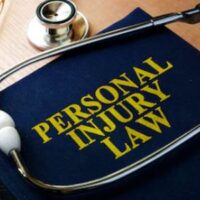Sudden Medical Emergency Defense

Car accidents are typically caused by negligence, but not always. For example, what happens if a driver suffers a medical emergency while behind the wheel?
The driver may not be considered negligent under the sudden medical emergency defense. This applies when a driver has an unforeseeable medical issue outside their control and causes an accident. Most states recognize some form of the sudden medical emergency defense. It may go by other names as well, such as the “act of God defense,” “blackout defense, ”defense of sudden unconsciousness,” and “sudden loss of capacity.”
A classic scenario in which this defense may apply is when a driver unexpectedly blacks out while driving, crosses the center line, and collides with oncoming traffic. This may be due to a medical condition such as heart attack, stroke, brain aneurysm, seizure, or other similar medical event that renders the driver unconscious or otherwise incapable of controlling the vehicle.
The sudden medical emergency defense involves showing that the driver lost consciousness right before the accident, causing them to lose control of the vehicle. The emergency must be sudden, giving the driver no time to react.
However, if a driver noticed symptoms of a health condition before the crash, the sudden medical emergency defense probably will not apply. The driver will be expected to pull over; they cannot simply ignore the symptoms.
Was the Medical Emergency Foreseeable?
One of the main issues in these cases is foreseeability, which is often a contested element. If a driver has no medical history of a certain condition, but it happens immediately before a car accident, the lack of foreseeability element likely is met. For example, if a driver has no history of heart problems, a heart attack would probably qualify as a sudden medical emergency.
On the other hand, if the driver has dealt with similar episodes in the past, the condition may be considered to be foreseeable. Drivers are expected to take any required medications and avoid driving, if necessary. A driver who sees a cardiologist and suffers a heart attack while behind the wheel will likely not be able to apply the sudden medical emergency defense.
When It Applies
Does the sudden medical emergency defense apply? The defendant will need to prove several elements:
- An unexpected emergency arose while the defendant was driving.
- The emergency or situation was not the defendant’s fault.
- The situation was one in which any reasonable person would have responded immediately.
- The defendant acted as any prudent person would have.
There will need to be evidence to support a sudden emergency defense, such as police reports, eyewitness accounts, accident reconstruction, and testimony from crash experts.
Contact a Personal Injury Lawyer
An accident can happen when a driver has a medical emergency. When it happens, is the driver at fault? It depends.
A Houston car accident attorney from The West Law Office, PLLC can assess your situation and determine liability and compensation. We’ll help you understand if the defense applies and the next steps. To schedule a free consultation with our office, call (281) 347-3247 or fill out the online form.
Source:
theclm.org/Magazine/articles/sudden-medical-emergency-defense/1856
